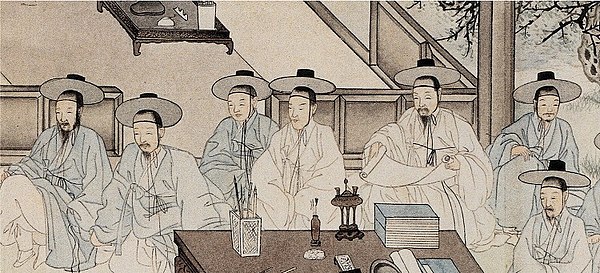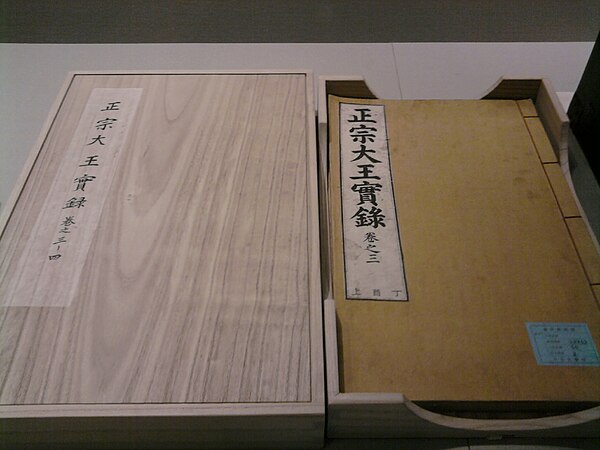Jungin
Videos
Page
The jungin or chungin were the upper middle class of the Joseon Dynasty in medieval and early modern Korean society. The name "jungin" directly means "middle people". This privileged class of commoners consisted of a small group of petty bureaucrats and other highly educated skilled workers whose technical and administrative skills enabled the yangban and the royal family to rule the lower classes. Jungin were the lifeblood of the Korean Confucian agrarian bureaucracy, on whom the upper classes depended on to maintain their vice-like hold on the people. Their traditions and habits are the forerunners of the modern Korean administrative systems in both North and South Korea.

Jungin

Young Korean man of the middle class, 1904
Hanja
Videos
Page
Hanja, alternatively known as Hancha, are Chinese characters used in the writing of Korean. Hanja was used as early as the Gojoseon period under the first Korean kingdom.

The calligraphy of Korean scholar, poet and painter Gim Jeonghui (김정희; 金正喜) of the early nineteenth century. Like most educated Koreans from the Three Kingdom period until the fall of the Joseon dynasty in 1910, Gim Jeong-hui composed most of his works in hanmun or literary Chinese.

The Korean Baegun Hwasang Chorok Buljo Jikji Simche Yojeol (백운화상초록불조직지심체요절; 白雲和尙抄錄佛祖直指心體要節) or roughly 'Anthology of Great Buddhist Priests' Zen Teachings' is the oldest example of a book printed with moveable type and was printed in Korea in 1377, but is written in literary Chinese.

A packet of Shin Ramyun, the Chinese character 辛, meaning 'spicy', is prominently displayed

The Veritable Records of the Joseon Dynasty, an annual record of the Joseon dynasty throughout its entire history, was written in Classical Chinese.